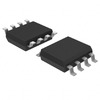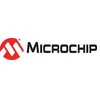Manufacturer Part Number
SST25VF016B-50-4I-S2AF
Manufacturer
Microchip Technology
Introduction
The SST25VF016B is a 16Mbit serial Flash memory chip with SPI interface, suitable for various embedded applications that require non-volatile data storage.
Product Features and Performance
16Mbit (2M x 8) of non-volatile FLASH memory
SPI interface for easy system integration
Operating voltage range of 2.7V to 3.6V
Maximum clock frequency of 50MHz
Fast page program time of 10 seconds
Secure Digital (SD) card compatible pinout
Automatic sleep mode for low power consumption
100,000 erase/program cycles
Data retention of 100 years
Product Advantages
High-density non-volatile memory
Low power consumption
Fast programming and read speeds
Secure Digital (SD) card compatible pinout for easy integration
Robust endurance and data retention
Key Technical Parameters
Memory Size: 16Mbit
Memory Interface: SPI
Operating Voltage: 2.7V to 3.6V
Maximum Clock Frequency: 50MHz
Program Time: 10 seconds per page
Erase/Program Cycles: 100,000
Data Retention: 100 years
Quality and Safety Features
RoHS3 compliant
Industrial temperature range of -40°C to 85°C
Compatibility
Suitable for various embedded applications that require non-volatile data storage
Application Areas
Embedded systems
Industrial automation
Consumer electronics
Automotive electronics
Internet of Things (IoT) devices
Product Lifecycle
The SST25VF016B is an active product and is not nearing discontinuation.
Microchip Technology offers a range of compatible and upgraded products for future replacements or upgrades.
Several Key Reasons to Choose This Product
High-density 16Mbit non-volatile memory for data storage
Low power consumption for energy-efficient applications
Fast programming and read speeds for improved system performance
Secure Digital (SD) card compatible pinout for easy integration
Robust endurance and data retention for long-term reliability
Wide industrial temperature range for use in harsh environments
Availability of compatible and upgraded products for future needs



 SST25VF016B-50-4C-S2ASST
SST25VF016B-50-4C-S2ASST SST25VF016B-50-4I-QAF-TMicrochip
SST25VF016B-50-4I-QAF-TMicrochip